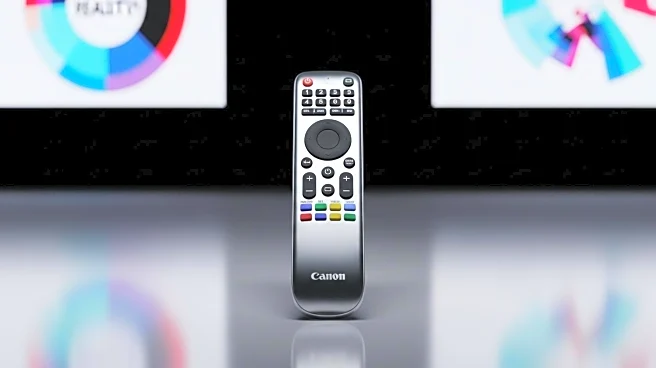What's Happening?
Several significant developments in reality TV are reshaping the landscape in 2025. Taylor Frankie Paul, known from 'The Secret Lives Of Mormon Wives,' has been announced as the new lead for 'The Bachelorette,' prompting ABC to adjust its premiere schedule. Additionally, 'Love On The Spectrum' won an Emmy for Outstanding Unstructured Reality Program, enhancing streaming platforms' prestige. Kristin Cavallari has declared her departure from reality TV, indicating a trend of talent moving away from the genre. The Chrisley family has returned to television amid legal controversies, while engagements from 'Love Island' and 'The Challenge' stars are generating buzz. These events are influencing network strategies and viewer engagement.
Why It's Important?
These shifts in reality TV are significant for both the industry and viewers. The casting of Taylor Frankie Paul as 'The Bachelorette' lead is expected to generate substantial media coverage and influence ABC's programming strategy. The Emmy win for 'Love On The Spectrum' highlights the growing importance of streaming services in delivering quality content, potentially affecting future production decisions. Kristin Cavallari's exit from reality TV may signal a broader trend of stars seeking privacy, impacting the genre's talent pool. The Chrisley family's return, despite legal issues, suggests that controversy remains a powerful draw for audiences. Engagements from reality stars continue to captivate fans, underscoring the genre's influence on popular culture.
What's Next?
As these developments unfold, networks are likely to continue adjusting their strategies to capitalize on viewer interest and media attention. ABC may leverage Taylor Frankie Paul's casting to boost ratings and engagement. Streaming platforms could see increased investment in reality programming following 'Love On The Spectrum's' Emmy win. The departure of high-profile stars like Kristin Cavallari might lead to a reevaluation of reality TV's appeal and format. The Chrisley family's legal saga could influence future programming decisions, while the popularity of reality star engagements may drive more personal storylines in upcoming seasons.
Beyond the Headlines
These changes in reality TV reflect broader cultural and industry trends. The emphasis on streaming prestige and the departure of established stars suggest a shift towards more curated and high-quality content. The continued fascination with reality star relationships indicates the genre's enduring appeal and its ability to shape public discourse. As networks and producers navigate these shifts, the balance between controversy, quality, and viewer engagement will be crucial in defining the future of reality television.









